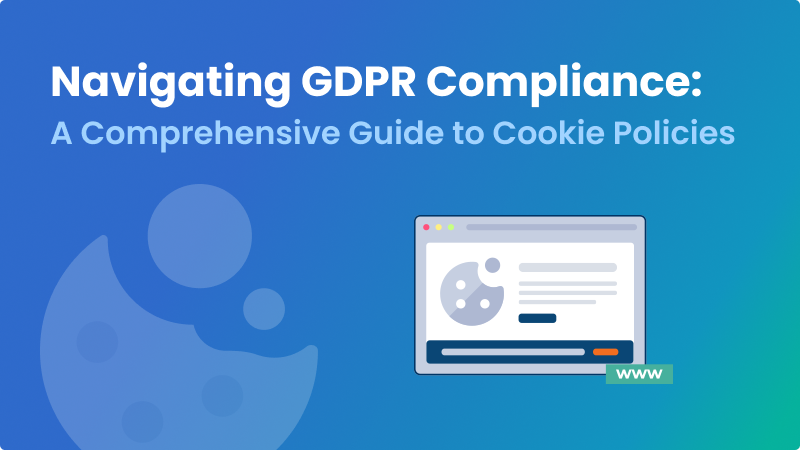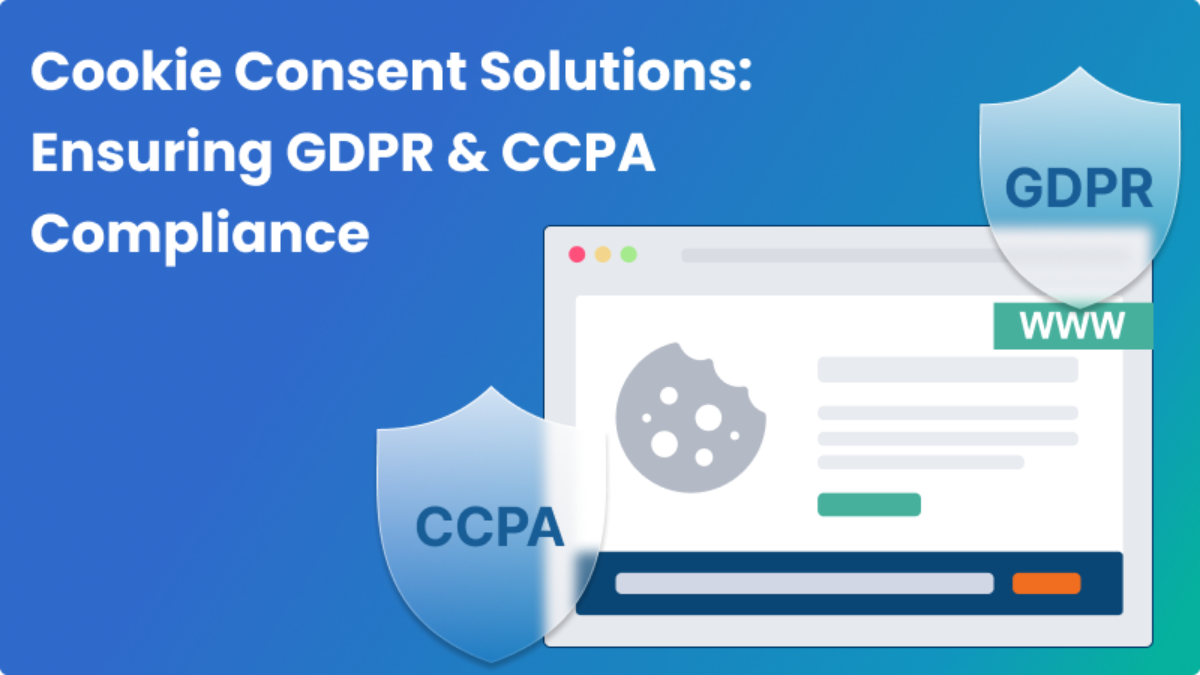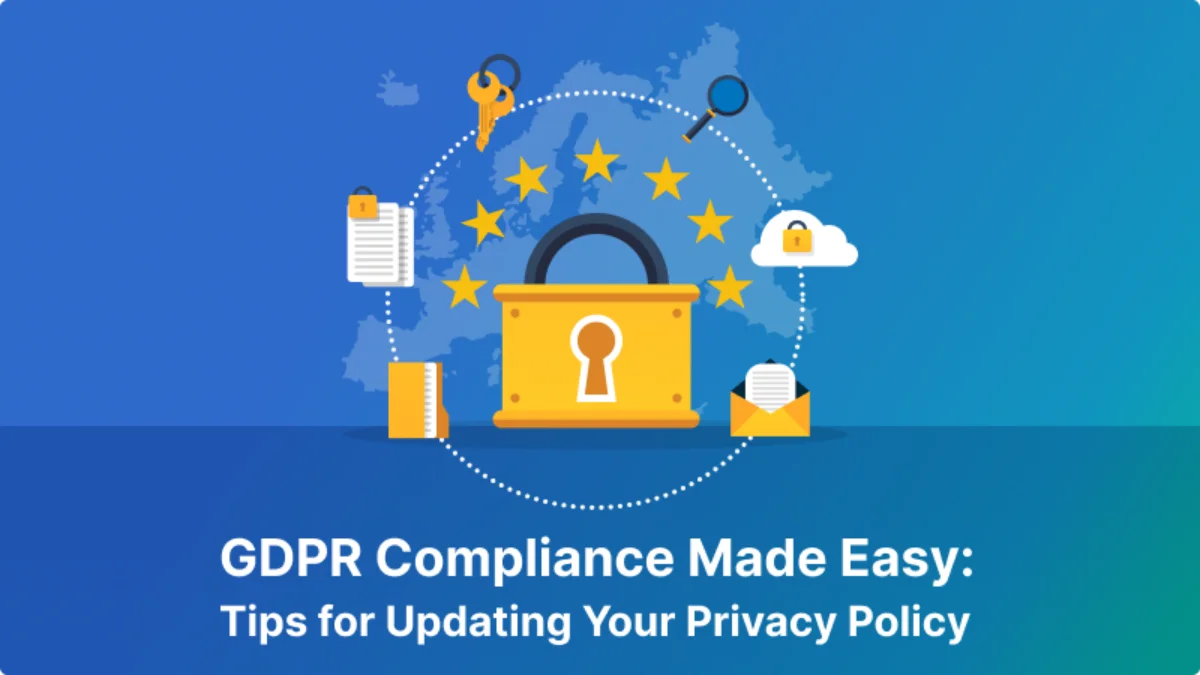Navigating GDPR Compliance: A Comprehensive Guide to Cookie Policies

In an era marked by increasing concerns over data privacy and protection, the General Data Protection Regulation (GDPR) stands as a pivotal piece of legislation. Enforced by the European Union (EU) in 2018, GDPR fundamentally reshaped the way organizations worldwide handle personal data. Among its many provisions, GDPR mandates strict guidelines for the use of cookies on websites, requiring transparent communication and explicit consent from users. Navigating GDPR compliance, particularly concerning cookie policies, is essential for any entity operating within the EU or targeting EU citizens. In this comprehensive guide, we delve into the intricacies of GDPR-compliant cookie policies, offering insights and actionable steps to ensure adherence to these regulations.
Understanding Cookies and Their Role
Before delving into GDPR compliance, it’s crucial to understand what cookies are and their significance in online interactions. Cookies are small pieces of data stored on users’ devices by websites they visit. These data files serve various purposes, including enhancing user experience, tracking website usage, and delivering personalized content. However, some cookies, particularly third-party cookies, raise concerns regarding privacy and user consent.
GDPR's Impact on Cookie Policies
GDPR introduced significant changes regarding the use of cookies, aiming to bolster individuals’ control over their personal data. Under GDPR, cookies that collect personal information, such as IP addresses or browsing habits, are subject to stringent regulations. Website operators must obtain users’ explicit consent before deploying such cookies and provide clear information about the data collected and its intended use.
Key Elements of GDPR-Compliant Cookie Policies
Crafting a GDPR-compliant cookie policy involves several essential elements to ensure transparency, user control, and compliance. Here are key components to consider:
Clear Cookie Consent Mechanism
Implement a user-friendly cookie consent mechanism that allows visitors to provide explicit consent before any cookies are placed on their devices. This mechanism should offer granular control, allowing users to accept or reject cookies based on their preferences.
Transparent Information
Provide transparent information about the types of cookies used, their purposes, and the data collected. This information should be easily accessible and understandable, preferably through a dedicated cookie policy page or banner.
Cookie Settings Management
Offer users the ability to manage their cookie settings easily. This includes options to revoke consent, change cookie preferences, and opt out of non-essential cookies without hindering access to essential website functionalities.
Regular Updates and Review
Regularly review and update your cookie policy to reflect any changes in cookie usage, data processing practices, or regulatory requirements. Keep users informed about updates and provide adequate notice before implementing significant changes.
Third-Party Cookies and Data Sharing
Be transparent about any third-party cookies used on your website and their implications for users’ privacy. Obtain consent for third-party tracking and data sharing activities, ensuring users understand the potential risks and benefits.
Implementing GDPR-Compliant Cookie Policies: Best Practices
While the specifics of cookie policies may vary depending on the nature of the website and its data processing activities, certain best practices can help ensure GDPR compliance:
- Prioritize user privacy and data protection in all cookie-related decisions.
- Utilize consent management platforms to streamline the process of obtaining and managing user consent for cookies.
- Implement cookie banners effectively to provide clear information and obtain consent from website visitors.
- Conduct regular audits to assess cookie usage, data collection practices, and compliance with GDPR requirements.
- Provide comprehensive training for staff involved in website management and data handling to ensure awareness of GDPR obligations.
- Engage legal experts or GDPR consultants to review and validate your cookie policies, ensuring they align with regulatory standards and best practices.
Conclusion
Navigating GDPR compliance, particularly concerning cookie policies, is essential for organizations seeking to uphold user privacy and data protection standards. By understanding the key principles of GDPR-compliant cookie policies and implementing best practices, businesses can build trust with their users, mitigate regulatory risks, and contribute to a safer and more transparent online environment. As data privacy continues to gain prominence globally, prioritizing GDPR compliance is not just a legal requirement but a strategic imperative for businesses operating in today’s digital landscape.

















